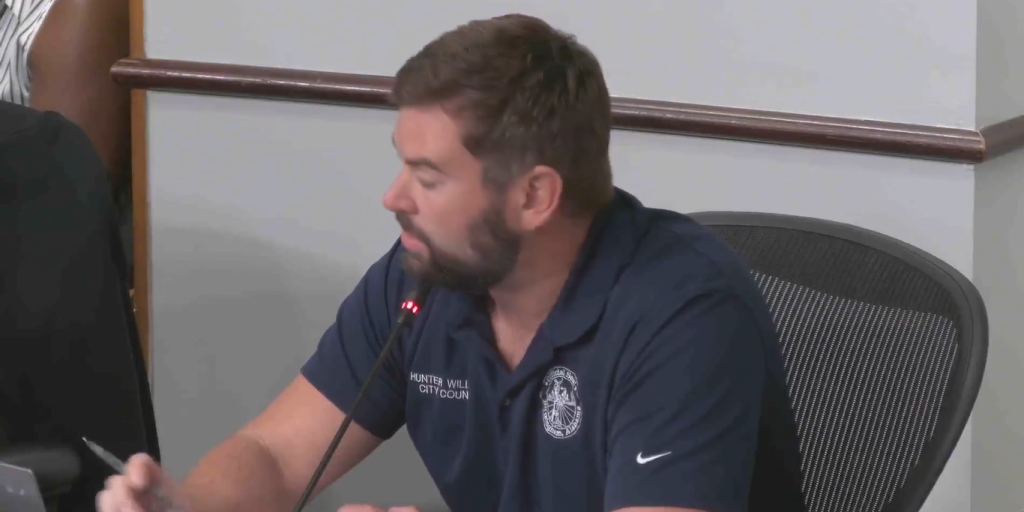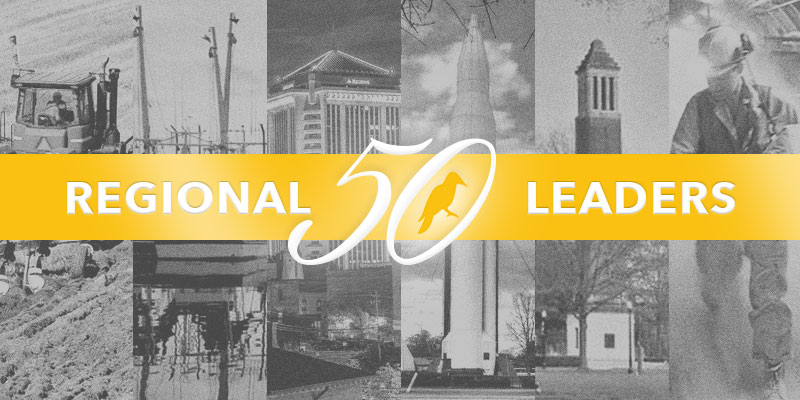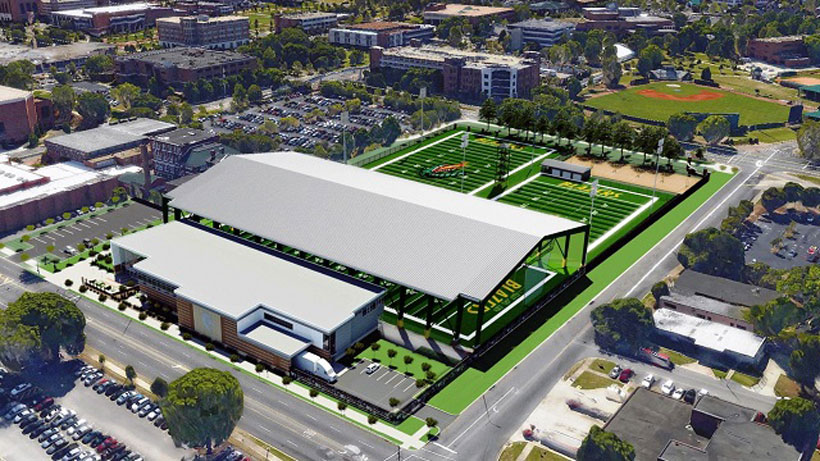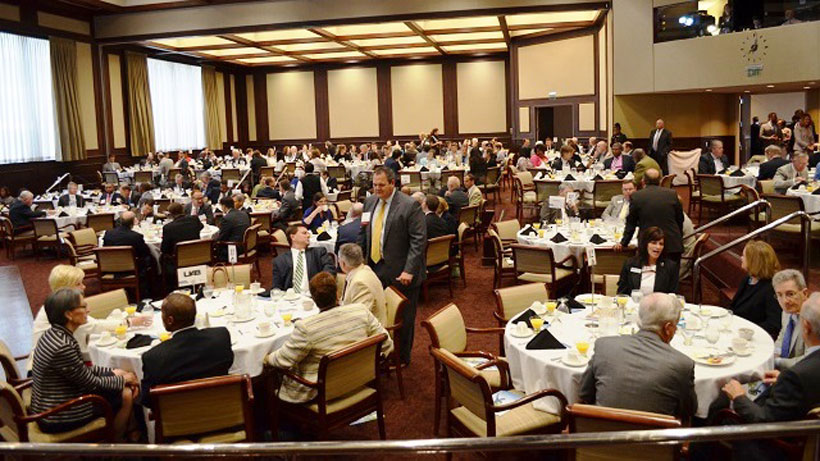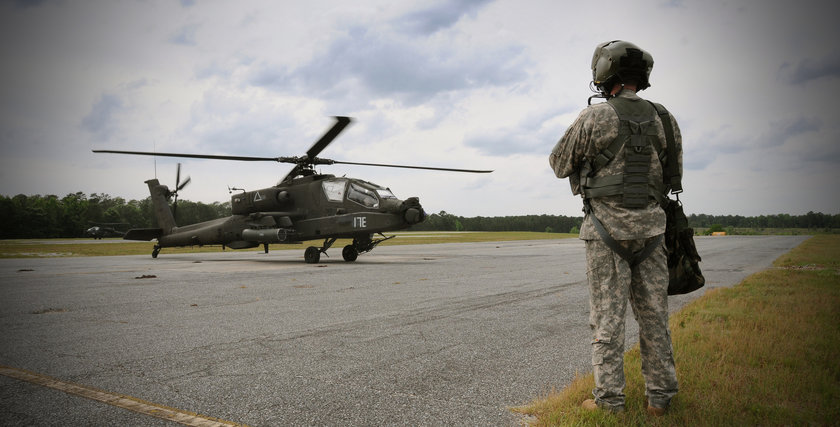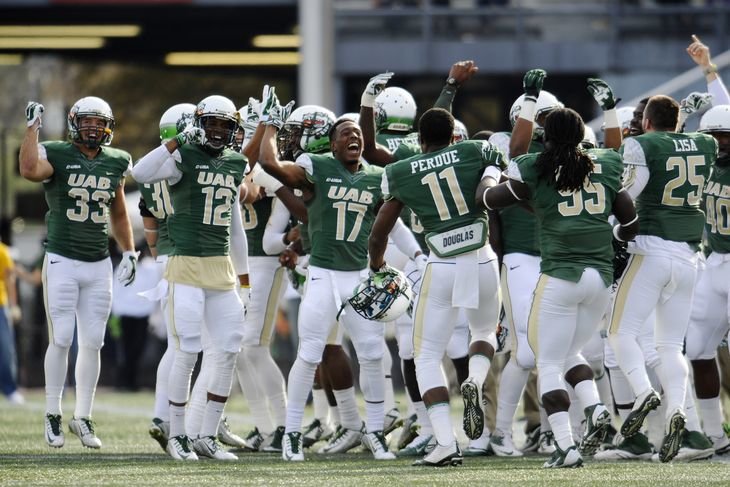
Four decades after graduating from the University of Alabama at Birmingham (UAB) with an engineering degree, Dr. Ray Watts — now the president of his alma mater — walked into perhaps the toughest meeting of his life.
Citing a funding shortfall and an overall lack of community support, Watts told a room full of UAB football players and coaches the program would be shuttered immediately, along with the university’s bowling and rifle teams.
Some of the players simply walked out. Others vented their frustrations in emotional pleas for Watts to reconsider, or at least better explain himself. A YouTube video that has now been viewed over 1,000,000 times captured a portion of the heated exchanges.
“It’s more than just numbers,” one UAB player said. “It’s people. It’s families. It’s UAB football.”
“This is a personal matter,” another player chimed in. “This isn’t money. Never did you guys ask us what could we do to fix the program. Never was that asked, because it’s not about the money.”
Tristan Henderson, a senior tight end for the Blazers who served as a military police officer in Iraq before coming to UAB to play football, delivered perhaps the most emotional and powerful remarks.
“My three-year-old…what am I supposed to say to him?” he said before breaking down into tears. “You’ll go home and sleep in a comfortable big a** house. Some of these guys came from 3,000 miles away to play here, to be a part of this.”
In the background, a crowd outside the building could be heard chanting in support of the football team.
And with that, UAB became the first FBS school to drop football since the University of the Pacific shuttered its team in 1995.
11 MONTHS LATER
The University of Alabama Board of Trustees, which oversees the entire UA System, including campuses in Birmingham, Huntsville and Tuscaloosa, on Friday announced its support for UAB to build a $12-15 million football operations facility.
The recently-formed UAB Athletics Foundation, a non-profit entity formed by some of Birmingham’s business heavyweights, came to the Board with fundraising commitments and a plan. The Board responded by agreeing to finance the facility with bonds to be paid by the donors’ pledges. Several members of the UA Board have even agreed to join the Foundation themselves, pledging $100,000 of their personal money to the cause.
“The fact the trustees and UAB are allowing us to go ahead and start this in advance of having any cash in the bank is a significant step of support,” said foundation member Tommy Brigham. “This is a game-changer, a complete game-changer”
College football insiders Yellowhammer spoke with on background agreed with Mr. Brigham’s assessment. UAB’s subpar facilities have made it difficult for the coaches to attract coveted recruits. An eight-figure investment in practice space will put the Blazers in a position to not only compete, but to thrive.
Additionally, members of the Foundation indicated that the City of Birmingham and the Birmingham Jefferson Convention Complex (BJCC) are close to agreeing to construct a multi-purpose stadium that could be a long-term home for UAB football. The Board signaled its support for the plan, giving UAB football fans a glimpse of a future they never imagined could exist less than a year ago.
TRUST DISSOLVES
The year between UAB football being shuttered and Friday’s Board meeting signaling unprecedented support for the program was fraught with accusations of back-room deals, good-ol’-boy politics and nefarious intentions.
Dr. Watts, with the UA Board at his back, believed the initial decision to end the program was made with UAB’s best interest at heart and with the overwhelming support of data.
From their perspective, UAB was allocating $20 million per year of student and institutional funding for an athletics program that was going nowhere. Watts decided that rather than taking one more dollar from nurses, cancer research, or other areas of UAB, he would shutter programs that did not appear to have broad support in the community.
The football team was playing in the decaying remnant of Legion Field, and couldn’t draw the crowds it needed to break even.
UAB football advocates, however, saw it much differently.
In their view, the University of Alabama Board of Trustees was — and had always been — unfairly biased toward the Tuscaloosa campus. Paul Bryant, Jr., the son of legendary UA coach Paul “Bear” Bryant and one of the Board’s most influential members, was also believed to hold an ancient vendetta against former UAB athletic director Gene Bartow, who Bryant believed had attempted to sully his father’s legacy with allegations of cheating. Bryant’s allies dismissed the accusations, saying it was ridiculous to think a man of his stature and accomplishments would hold such a personal grudge after all these years.
Fueled by their frustration and by the slights — whether real or perceived — of the UA Board, the #FreeUAB movement cranked up a grassroots advocacy machine that kept the debate in the headlines for months.
Both sides felt the other was being completely unreasonable.
THE MOMENT THINGS CHANGED
On June 1, 2015, Dr. Watts announced that UAB football would be coming back.
This was not, however, the most important moment in the story. After all, Watts made it clear that UAB would be capping the amount of money the university would commit to football. Without significant donor support in the private sector, the program would likely continue to limp along.
But everything changed when a group of Birmingham businessmen went to work.
Hatton Smith had turned Royal Cup Coffee into a national brand. Tommy Brigham is one of Alabama’s most successful real estate entrepreneurs. Craft O’Neal runs Birmingham’s second largest private company. Other prominent businessmen joined that core group in exhausting their rolodexes to rally support for UAB football.
If funding was truly the problem, they were intent on solving it.
They acquired millions of dollars in donor commitments and successfully made their case to Dr. Watts and the UA Board that Birmingham had rallied to UAB’s support in a big way.
After years of very little fundraising and no real indication that the community as a whole even cared, the small group of heavy-hitters, backed by the vocal support of the grassroots, suddenly had everyone’s attention.
THE ICE BEGINS TO THAW
Members and allies of the UA Board who Yellowhammer spoke with Friday said the outpouring of financial support for UAB football showed the community was serious about addressing their concerns. After months of suspicion, rumors and innuendo, the group of businessmen showed their trust in the Board’s stated reasoning by working to solve the funding issues.
The Board, in turn, stepped out on a limb and approved bond financing for facility improvements that will ultimately be funded by the donor commitments obtained by the members of the Foundation. UAB football coach Bill Clark also received a five-year contract, giving him the support needed to credibly sell his program as a stable, viable option for high school and junior college recruits.
“Other recruiters were saying, ‘Don’t believe Coach Clark about UAB, just go look at his practice field, they’re not committed to the program.’ That message got through to the Board of Trustees,” said Johnny Johns, the CEO of Protective Life Insurance and a member of the Board. “We said, ‘If Birmingham really wants to make this happen, we’ll take a leap of faith and do some debt financing so they don’t have to have all the money up front.’ They got a funding plan together and we want to help them make it happen.”
UAB supporters also made a concession behind-the-scenes.
Tuscaloosa attorney Scott Phelps was nominated on Friday to succeed the retiring Paul Bryant, Jr., on the UA Board representing the state’s 4th Congressional District (northern Tuscaloosa). Phelps is one of Bryant’s business partners, fueling accusations that he is trying to maintain significant influence over the Board’s decision making. Phelps’ supporters countered by noting he had the overwhelming support of the Birmingham business community. He had attended college at Birmingham Southern and practiced law in the Magic City for much of his adult life before moving to Tuscaloosa.
Both sides figuratively put down their guns — the Board by signaling approval for the funding plan and even getting involved in it themselves, UAB advocates by trusting the Board on Phelps — leading to a breakthrough that few could have envisioned at any point during the past 11 months.
BIRMINGHAM PULLED IT OFF
The fight over the future of UAB football started as a sadly familiar story for the city of Birmingham. Warring factions were at each other’s throats. Trust was non-existent. And the city and its residents were worse off because of it.
But in a surprising and encouraging turn of events, incremental concessions were made by both sides to the point that all stakeholders now appear to be excited about the future.
“The Board said they would listen and work with the Birmingham community and they backed it up with actions today,” said Rep. Jack Williams, who had previously been one of the Board’s most vocal detractors.
“It’s another big day for UAB athletics, certainly not the first and won’t be the last,” added UAB athletics director Mark Ingram. “We’d obviously like to thank the Board of Trustees for this continued show of support to our institution and our department and this newly created UAB Athletics Foundation, which is already hard at work trying to help us build for the future.”
“Everyone’s a winner today — UAB, the students, the Trustees, the community,” concluded Mr. Johns of the Board. “People on both sides had to take a lot of risks to get to this point. But this is what happens when people work incrementally, listen more than they talk, and build trust over time. It’s a great day for everyone involved.”
There are many more challenges ahead, for UAB and for the Birmingham community as a whole. But if these two sides can find common ground after everything that has transpired, surely we can tackle whatever comes next.
From Tears to Triumph: How factions came together to take UAB football to new heights https://t.co/Jz5tPSYwGc
— Cliff Sims (@Cliff_Sims) November 6, 2015




